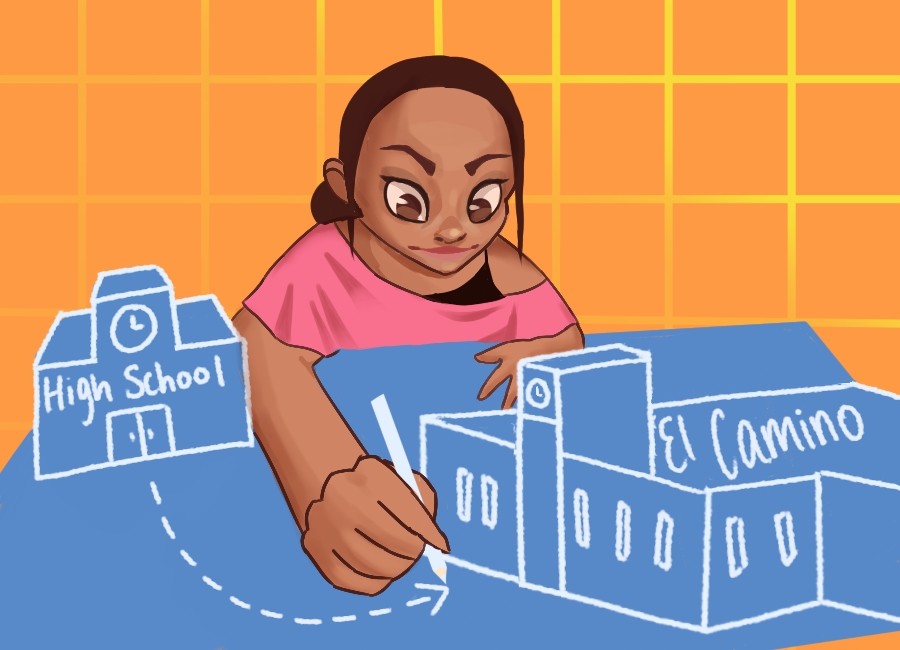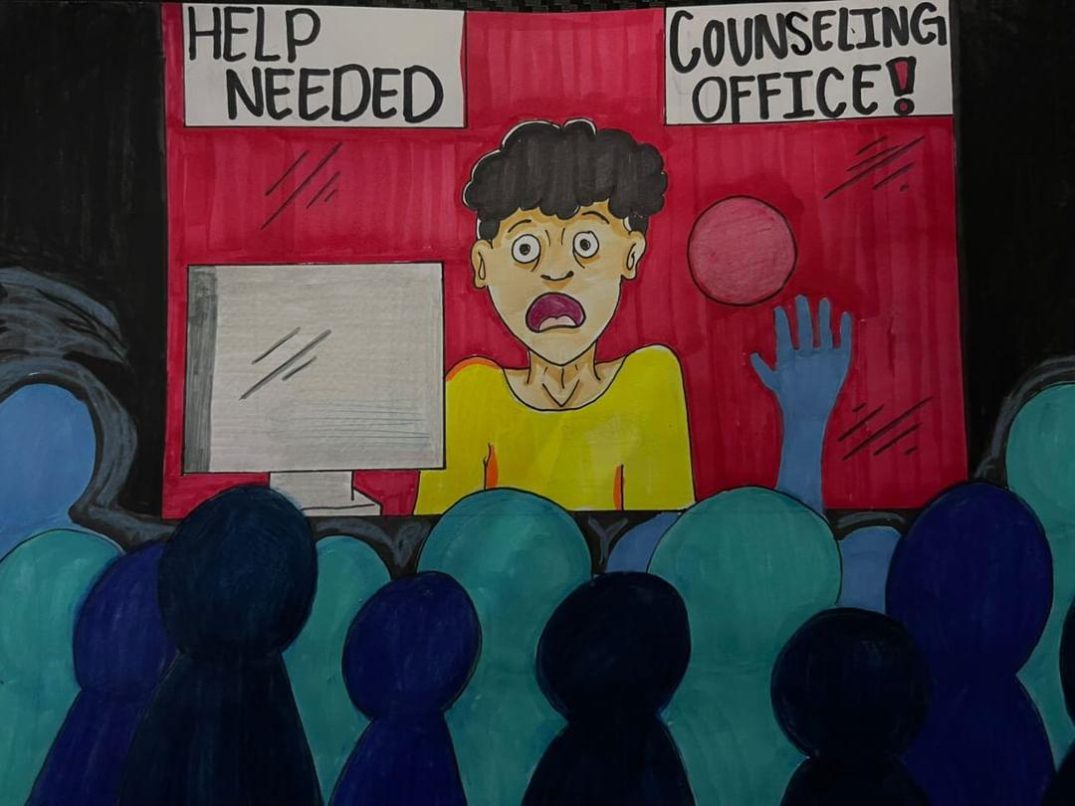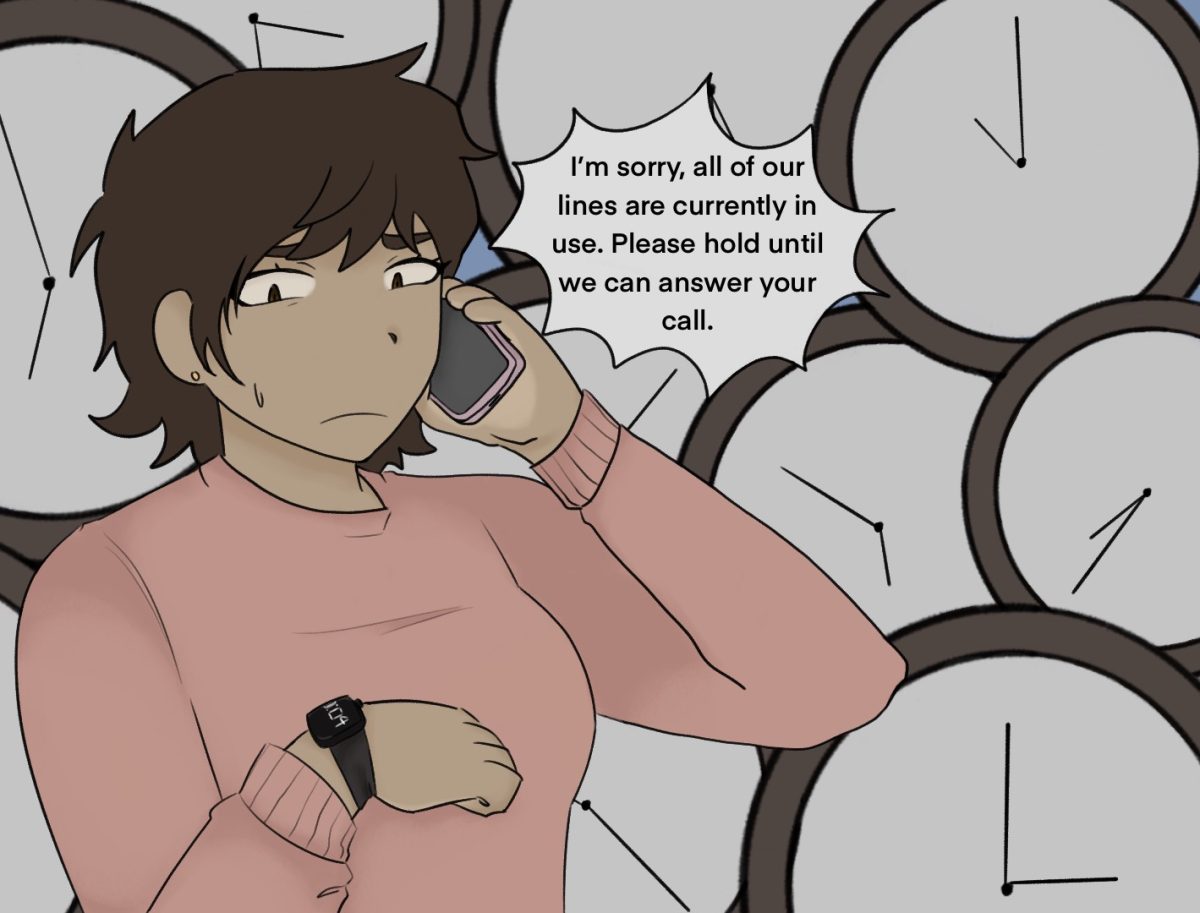Perhaps if I hadn’t known she was homeless when I first saw her, I wouldn’t have guessed it.
I remember she was wearing blue jeans, a sweater and a cap that covered her hair completely and was holding her cellphone between her hands.
She was leaning against the front counter in the library, right where we had agreed to meet.
We walked together to the second floor of the library, and sat down in the hallway where she began to tell me how she ran away from her house in Maryland five years ago. Keythema Bush, 21, business major, was only 16 at the time.
In Maryland she had lived with her dad and stepmother but ran away to escape the constant verbal and physical abuse she suffered there.
It amazed me to see her smile while telling me her story, especially when she told me about a time where her stepmother and her got into a fight and ended up choking each other.
Finding a place to stay at was especially hard as family and friends began turning their backs on her.
She eventually arrived in California to live with her biological mother, who had lost custody of Bush for stripping and prostituting when Bush was only 6-years-old.
But her mother didn’t support Bush’s idea of going to school, mainly because this limited the amount of time she could spend working and taking care of her little brother who was 2-years-old at the time. Her mom eventually kicked her out.
At first her story seemed a little unrealistic; it was hard to believe that at such a young age a girl could be forced to be an adult.
Maybe it became so hard to believe because I grew up in a family that always offered me its full support.
Growing up, I always knew that no matter what happened, my parents and family would always be there to help me. But sadly, stories like the one Bush shared with me are a common reality.
According to the National Runaway Switchboard, more than 1.5 million adolescents run away from their homes in a year in the U.S. alone.
Many teenagers return home within a couple of days or maybe months but others never go back to their families.Bush is one of those people who never returned home, but she did keep in touch with her father and stepmother.
She now lives in a program called YMCA Brighter Future program, which helps young, single girls by offering them a small room of their own and a safe environment.
“I considered that period of my time being in survival mode,” she said. “Everything was about where am I going to live, what am I going to eat, where is my money coming from, and how I’m I going to do this to stay in school.”
Talking to her made me realize how important it is to have programs that can offer genuine help to girls similar to her.
I feel like many times teenage runaways find themselves lost in drugs and alcohol, living in the streets and lost in their own tragedy mainly because there aren’t enough programs that can help them.
Bush was lucky enough to find this program and to receive the help from counselors at EC. She is now majoring in business and will soon transfer to Clark Atlanta University.
Although she proved to be a responsible girl capable of looking out for herself not every person can do the same. This is why America should spend more time creating shelters that can offer more than a meal and a mattress to desperate teenagers.






